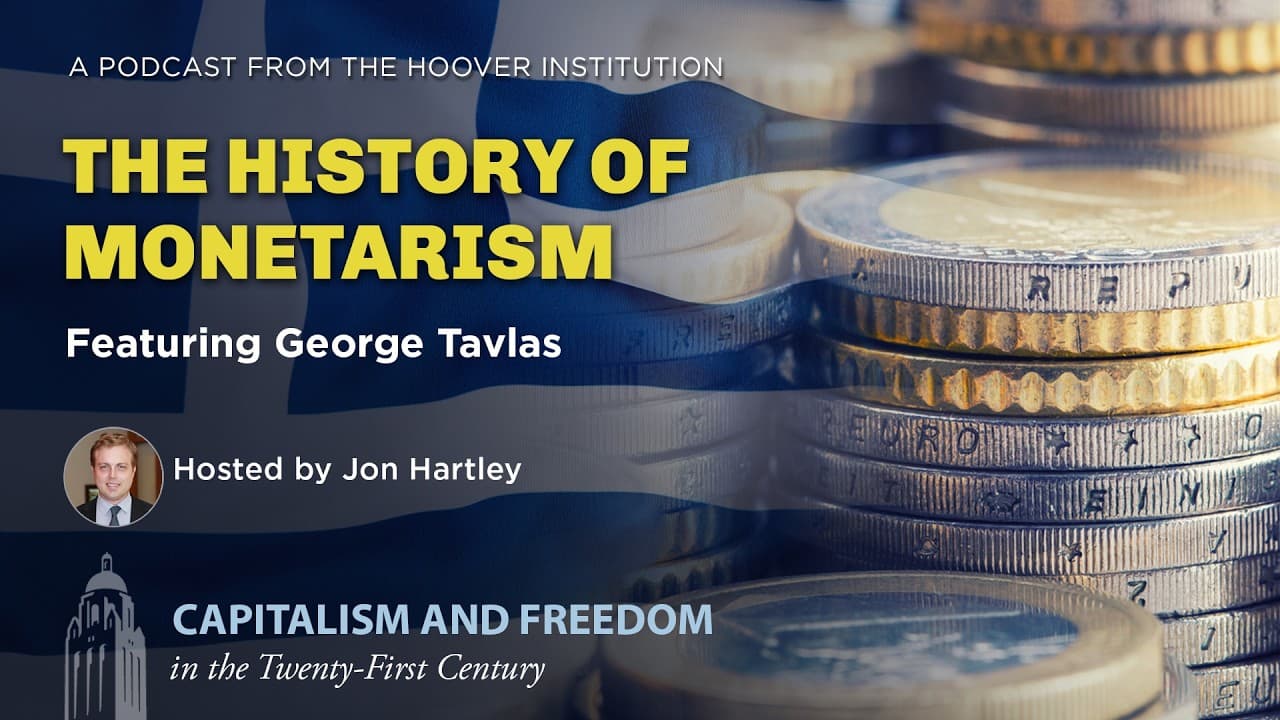Economist George Tavlas Discusses Monetarism's Evolution and Central Banking's Post-Pandemic Resurgence

George Tavlas, a distinguished economist and Alternate to the Governor of the Bank of Greece for the European Central Bank, recently joined Hoover Policy Fellow Jon Hartley on the "Capitalism and Freedom in the 21st Century" podcast. The discussion centered on Tavlas's extensive career, the historical development of monetarism, his new book The Monetarists, and the changing landscape of central banking. The conversation highlighted the renewed interest in monetary theory following its perceived decline after the 1980s and its resurgence in the post-pandemic era.
Tavlas, who also serves as a Distinguished Visiting Fellow at the Hoover Institution, shared insights from his tenure at the Bank of Greece, where he was involved in the management of the Greek government-debt crisis and served as Director General. His career has spanned significant roles at the International Monetary Fund, the U.S. Department of State, and as an advisor to the World Bank. He is an active researcher in monetary policy, monetary doctrine, and time-series econometrics.
His recently published book, The Monetarists: The Making of the Chicago Monetary Tradition, 1927–1960, challenges the long-held consensus that Milton Friedman "invented" the Chicago monetary tradition. Tavlas argues that a distinct quantity theory of money tradition existed at the University of Chicago prior to Friedman, uniquely shaping his later monetarist views. This deeply researched work utilizes extensive archival material to trace the intellectual lineage of monetarism from figures like Henry Simons, Jacob Viner, and Frank Knight to Friedman.
The podcast, hosted by Jon Hartley, an economics PhD candidate at Stanford University and Policy Fellow at the Hoover Institution, explores critical topics in economics, finance, and public policy. Hartley's interviews often delve into how guests developed their ideas throughout their careers, aligning with the podcast's namesake, Milton Friedman's seminal work Capitalism and Freedom. The conversation with Tavlas provided a timely examination of how historical monetary theories continue to inform contemporary central banking practices, especially in light of recent global economic shifts.
The discussion also touched upon the evolution of central banking, noting its decline in prominence after the 1980s and its current, heightened relevance following the global pandemic. Tavlas and Hartley explored how the principles of monetarism, particularly the belief in controlling the money supply to stabilize prices and interest rates, are being re-evaluated in today's complex economic environment. This renewed interest underscores the enduring impact of the Chicago monetary tradition on economic thought and policy.